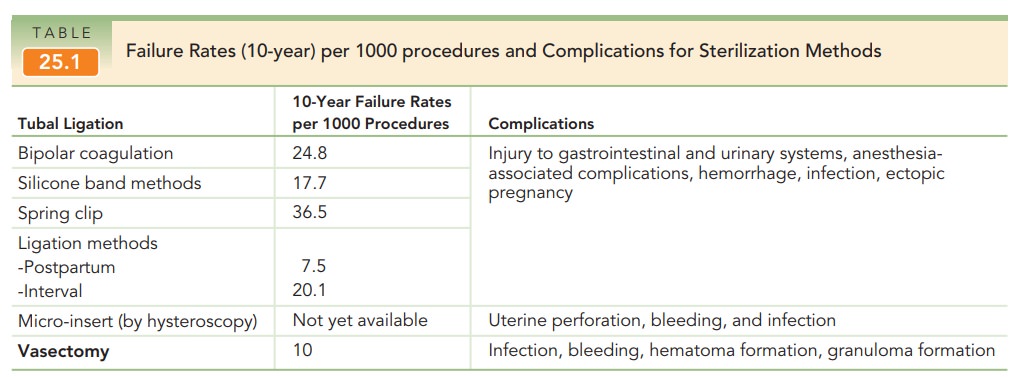Chapter: Obstetrics and Gynecology: Sterilization
Sterilization
Sterilization
All available surgical methods of
sterilization prevent the union of sperm and egg, either by preventing the
passage of sperm into the ejaculate (vasectomy) or by permanently occluding the
fallopian tube (tubal ligation and hystero-scopic sterilization).
Although
it is possible to reverse some forms of sterilization, the difficulty of doing
so, combined with the generally poor rate of success and the financial expense,
demands that patients con-sider the procedure permanent.
The physician should counsel
couples who are considering surgical sterilization and assist them in
determining the best method.
Changes in operative techniques;
anesthesia methods; and attitudes of the public, insurance providers, and
physi-cians have contributed to the rapid increase in the number of
sterilization procedures performed each year. Modern methods of surgical
sterilization are less invasive, less ex-pensive, safer, and as effective—if
not more effective—than those used in the past (Table 25.1).

Related Topics